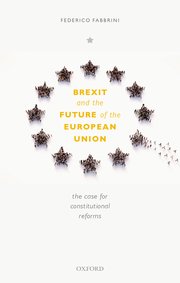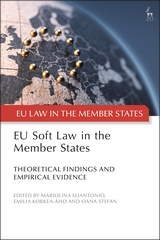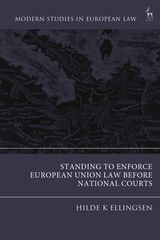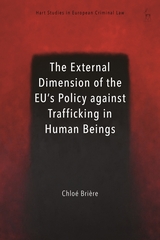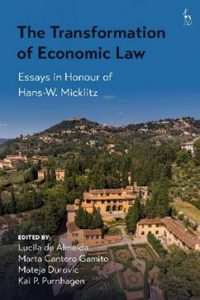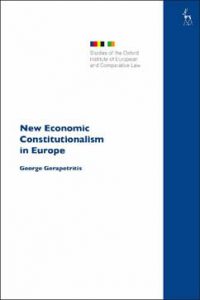Book Review of Federico Fabbrini, Brexit and the Future of the European Union, Oxford University Press, 2020, 160 pp, ISBN: 9780198871262.
A European Defining Moment: The ‘Ever Closer Union’ in the Aftermath of Brexit
*Michele Corgatelli
Five years after the end of World War II, French statesman Robert Schuman proposed a Franco-German cooperation in the coal and steel industry aimed at making future conflicts between the two countries ‘not merely unthinkable, but materially impossible’.[1] On such foundations, Europe was envisioned as a dynamic process of integration: ‘(it) will not be made all at once, or according to a single plan’, the Schuman Declaration states; ‘It will be built through concrete achievements which first create a de facto solidarity’.[2]
The strive towards an ‘ever closer union’ [3] represents therefore a purpose, a goal, and even a promise. However, the fact that Europe was not meant to be built in a day can determine a state of permanent institutional restlessness, especially when the integration path cyclically stalls, or shows its weaknesses. In this sense, it has been argued that the United Kingdom’s departure (‘Brexit’) caused a ‘Machiavellian moment’, forcing the Union to face its own temporal finitude, proving that the project could eventually fail and fall apart.[4] Unquestionably, Brexit tests once again the willingness to take the project a step further after a considerable jolt to the European institutional architecture.
In his recent book ‘Brexit and the Future of the European Union’, Federico Fabbrini proposes a multi-facet analysis of this disruptive event through normative and historical lens, thus reconstructing its concise and clear record, from which to draw, through easy consultation, the sequence of facts that overlapped in the past years. Moreover, his inquiry conveys the dynamic dimension of the integration process, separately considering the Union ‘during’, ‘because of’, ‘besides’, ‘after’, and ‘beyond’ Brexit.
The book starts by outlining the remarkable synergy among European institutions and unity among other member States that emerged during the withdrawal negotiations (p. 9). However, the challenges posed by the ‘transitional’ implications of Brexit, for example the re-equilibrium of the balance of powers within European institutions (p. 36) add up to a series of past and present crises that have shaken the Union, namely the Euro-crisis, the migration crisis, the rule of law crisis, climate change, the enlargement to new members, and coronavirus (pp. 61-75).
The first chapters, through a logical progression, functionally lead to the dissertation of the post-Brexit future, where Fabbrini shows that the real paralysing obstacle to a further European integration is represented by the unanimity requirement for the amendment of the treaties (p. 95).
The incoming Conference on the Future of Europe could carry the transformative power of the Messina Conference of 1955 (p. 119) which broke through a paralyzed European project leading to the establishment of the European Economic Community and the European Atomic Energy Community (pp. 119-121) but could also fail like other previous attempts (pp. 121-123). Fabbrini proposes a solution to overcome the fossilization of the treaties: the draft of a new one, the ‘Political Compact’, submitted to a different ratification rule – not the unanimity, but a super-majority of for example three-quarters of the EU Member States (pp. 110, 124-129). [5] Moreover, ‘the treaty would not apply to the non-ratifying states, guaranteeing them the free choice of whether or not to join the Political Compact, with all the consequences that follow’ (p. 125).
Although the negotiation for further integration will certainly be easier without a champion of opt-outs halting it, [6] it is worth recalling that the European Constitution was turned down in 2005 by voters in France and the Netherland, while Irish voters rejected the Treaty of Nice in 2001 and the Treaty of Lisbon in 2007 (p. 98) proving that veto is an obstacle to future progresses even after Brexit.
The Author’s choice to recall the American precedent of the Philadelphia Convention of 1787, which reinterpreted its mandate to propose amendments to the Articles of Confederation and drafted the Constitution instead (pp. 127-128), is particularly significant. Indeed, that precise historical outcome has been considered one of the very few ‘constitutional moments’, a concept ‘distinguished by lasting constitutional arrangements that result from specific, emotionally shared responses to shared fundamental political experiences’.[7]
The American example, whose historical scope and value were not vitiated by the presence of a super-majority ratification mechanism, proves that unanimity is not necessary to lay the foundation of a lasting constitutional architecture. The existential threat to the European Union posed by Brexit, and the coronavirus crisis, could in fact play the role of one of those unique path-dependent moments. Fabbrini’s proposal of a ‘Political Compact’ provides a remedy to the block represented by the unanimity rule, that prevents the Union to effectively utilize this moment and to progress towards an ‘ever closer union’, although merely concentrical.[8]
If the Schuman Declaration of 1950 successfully led to the establishment of the European Coal and Steel Community in 1951, the other proposed area of European cooperation, namely the one in military and defence, was rejected by the French Assemblée Nationale, that voted down the European Defence Community in 1954 (pp. 119-120). After a momentary paralysis, the transformative power of the Messina Conference, a year later, founded the modern Europe (pp. 119-121).
After Brexit, a big halting force to integration is no longer part of the Union; [9] the Conference on the Future of Europe, striving on a renewed Franco-German cooperation, could in fact turn out to be a defining moment, if the right normative solutions – such as the ‘Political Compact’ proposed by Fabbrini – are taken to overcome the current European architectural rigidity caused by the unanimity impasse.
To conclude, ‘Brexit and the Future of the European Union’ stand out for clarity: it combines a holistic approach to a complex event, with a concise writing, devoid of unnecessary socio-political mannerisms. At the same time, the objective analysis is not an aseptic reconstruction of Brexit’s implications, being constantly integrated with original systematic reconstructions.[10] Most importantly, the analysis flows from a problem, namely the obstacles to reform, to a proposed solution, making the book not only academically original, but socially useful as well.
*Michele Corgatelli, LLM by Research Candidate, University of Glasgow.
————————————————————-
[1] Schuman Declaration (9 May 1950, whose recurrence is named ‘Europe Day’). Robert Schuman, who during the War escaped deportation to the Dachau concentration camp, was given the title of ‘Father of Europe’ after he left the office of first President of what is now the European Parliament. For the contribute of Jean Monnet to the Declaration, see Michael Burgess, ‘Entering the Path of Transformation in Europe: The Federal Legacy of the Schuman Declaration’ (2011) 29(2) Fr. Politics Cult. Soc. 4.
[2] ibid.
[3] Solemn Declaration on European Union (Stuttgart, 19 June 1983).
[4] Luuk van Middelaar, ‘Brexit as the European Union’s “Machiavellian Moment”’ (2018) 55 CML Rev. 3, 5.
[5] Fabbrini championed the ‘Political Compact’ in his previous study commissioned by the European Parliament’s Policy Department for Citizens’ Rights and Constitutional Affairs (‘Possible Avenues for Further Political Integration in Europe – A Political Compact for a More Democratic and Effective Union?’), available at: <https://www.europarl.europa.eu/thinktank/it/document.html?reference=IPOL_STU%282020%29651849>.
[6] The other champion of opt-outs is Denmark. Rebecca Adler-Nissen, ‘Behind the scenes of differentiated integration: circumventing national opt-outs in Justice and Home Affairs’ (2009) 16(1) JEPP 62, 63.
[7] ‘The overwhelming majority of the constitutions that we know do not have these specifics. Constitutions serve other, more technical, goals (…). One of the drawbacks of a constitution that emerges without the blessing of a constitutional moment is that it does not contribute to a sense of union, or to the formation of identity, among members of the society to which it applies’. András Sajó, ‘Constitution without the constitutional moment: A view from the new member states’ (2005) 3(2-3) ICON 243, 243.
[8] The post-Brexit attraction to the ‘variable geometry’ model of European integration is indeed a peculiar phenomenon, that could come from two sources: ‘According to one view, the distrust of the EU expressed by the majority of British voters reflects similar feelings in other parts of the European Union, and this implies that the Union should evolve into a less centralized and more flexible organization so as to assuage the growing mass of Eurosceptic citizens across Europe. Another explanation might be that the UK’s defection may act as an incentive for some other countries to advance the integration project more vigorously.’ Bruno De Witte, ‘The future of variable geometry in a post-Brexit European Union’ (2017) 24(2) MJECL 153, 155-156.
[9] ibid, 154.
[10] For instance, the Author detects three competing visions of European integration: ‘polity, which requires solidarity and a communion of efforts towards a shared destiny; (…) market, designed to enhance wealth through commerce, but with as limited redistribution as possible; (…) [autocracy,] which instead sees the EU as a vehicle to entrench state authoritarian rule, based on national identity and sovereignty claims, but with crucial transnational financial support.’ (60, 75-80).
